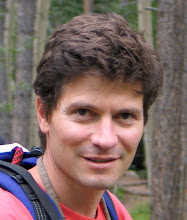Read Montague's Why choose this book? combines topics such as computational neuroscience, reinforcement learning, mind/brain, brain imaging, physics, evolution, perception, and a range of behaviors including addiction, trust, and regret to begin to describe how organisms assign value to available choices and make decisions. For it’s breadth, it is a very accessible read. I found what took me time getting through the book was continually pausing to consider the implications of what was just presented. He substantiates his writing with many references for further study.
Montague makes a materialist statement on page 222: “...But the unsettling point, and perhaps the one not to write home about, derives from the unnerving message about meaning at the heart of my book: All meaning is physical.” He also presents Stephen Hawking’s quote from A Brief History of Time: “Even if there is only one possible unified theory, it is just a set of rules and equations. What is it that breathes fire into the equations and makes a universe for them to describe?” Montague never answers this question, but argues that for the brain to have evolved to become a valuation machine, then it must be composed of (and have a history of) submachines which also encode value.
He does not touch on spirituality or mention God, but by this assessment, a theist could say that “God is in the details” and I am curious to hear what the theists say about this statement. Can it lead to anything other than predetermined Calvinism? Alternatively, the concept of “value” for the atheist materialist may not be so difficult from an evolutionary perspective when value is simply a measure of success of the survivors surviving. The difficulty for the materialist to provide evidence against God is that documenting all the values that go into a decision from the sub-atomic to brain level is impossible. Oh well, it still makes for interesting modeling work and conversation!
Only Physics Computes
2 years ago




